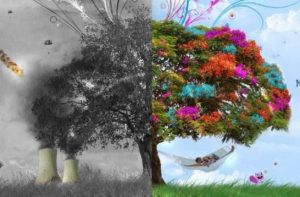
Last week marked what many would call a milestone in British criminal history. Two of Stephen Lawrence’s murderers were finally convicted and sentenced after an eighteen-year pursuit for justice by his family. In the space between the conviction of Dobson and Norris and my writing this column, hundreds of other essays, editorials and reports were published about the killers and their lack of repentance. Although justice has won a temporary victory, many troubling realities remain. For example, Lawrence’s family and friends have uncovered for all to see the “institutional racism” and laziness of Scotland Yard that hampered the investigation for nearly two decades. And there is little evidence of the aforementioned milestone aside from the fact that the festering racism rotting away the ties that bind British society is now better exposed. But beyond these immediate concerns, I am reminded, once again, of the difficult questions all socially engaged Buddhists face: among them, the moral issues surrounding people who simply will not admit to having done any wrong.

Human beings have a remarkable capacity for forgiveness and religions encourage this inclination. Very often, if someone who has hurt us, all we wish is to see a genuine, heartfelt expression of regret. We are often caught by our own surprise of how relieved, touched, or willing to forgive we are if the apology is sincere and timely. While no one is ever obligated to forgive someone else, the catharsis of repentance is recognized by all the great religions, including Buddhism, to be indispensable to maturing as a human being. Confessions of one’s sins is owed to not only the Buddhas of the Ten Directions, of course: we live in a world of sentient beings and if we do harm to those beings we need to express our remorse to them, too. In the courts, convicted criminals are often given a slightly lighter sentence if they plead guilty, or display remorse for crimes they commit (“mitigation for contrition”). Flawed as such an approach may be, it reveals something about basic human morality: seeing wrongdoers repent is so important to us that we are even willing to soften their punishment if we can witness their contrition.
Despite being one of the greatest cultural influences alongside politics, business and the media, religion can do very to force inner change in human beings. This is especially so for those who don’t believe they have been tainted by wrongdoing. No one should feel justified to guilt-trip someone into feeling they’ve done wrong. Free will is invaluable: to love God is a free choice, declares Christianity. There is no compulsion in religion, insists the Qur’an. Yet the Buddha said that those with eyes would see, and those with ears would hear.
But we can only see and hear if we have eyes and ears. We are all, to some degree, free, yet to some extent we are always chained by restrictions imposed by external influence and inner weakness. We inherit the family, community and society we grow up in, and if my father was a professional crime lord like Norris’s was, I could imagine how difficult it would be for me to escape such a world. The Guardian published an excellent piece about the pathetic life led by the two criminals not only before, but also after Lawrence’s death up until their conviction. Any decent person would be revolted by Dobson and Norris’s refusal to admit guilt, but too often and too tragically people of their ilk are not so much refusing but unable to admit anything they did was wrong. How is religion, Buddhism, the Buddha, supposed to reply to the inability to confess? How can one argue with someone twisted by crime to the point of insanity?
Here, Buddhism offers no easy answer. Perhaps we should simply follow the lead of secular society and its lawyers, magistrates and officials. Or the Buddha might simply remain in his profound silence, for some things like the workings of karma are beyond the mental grasp of normal sentient beings. The depths of the human heart – from its sublime, almost painful nobility to its insatiable, rapacious darkness – might well be one of the Enlightened One’s Unanswered Questions.











